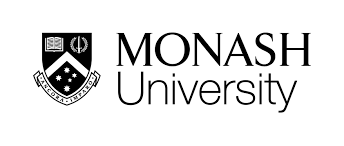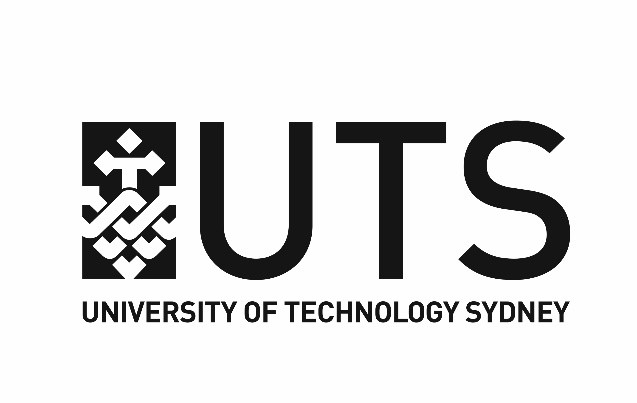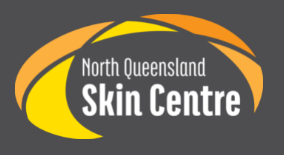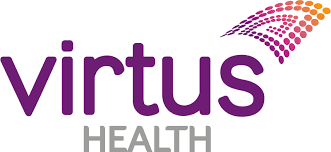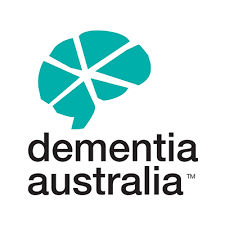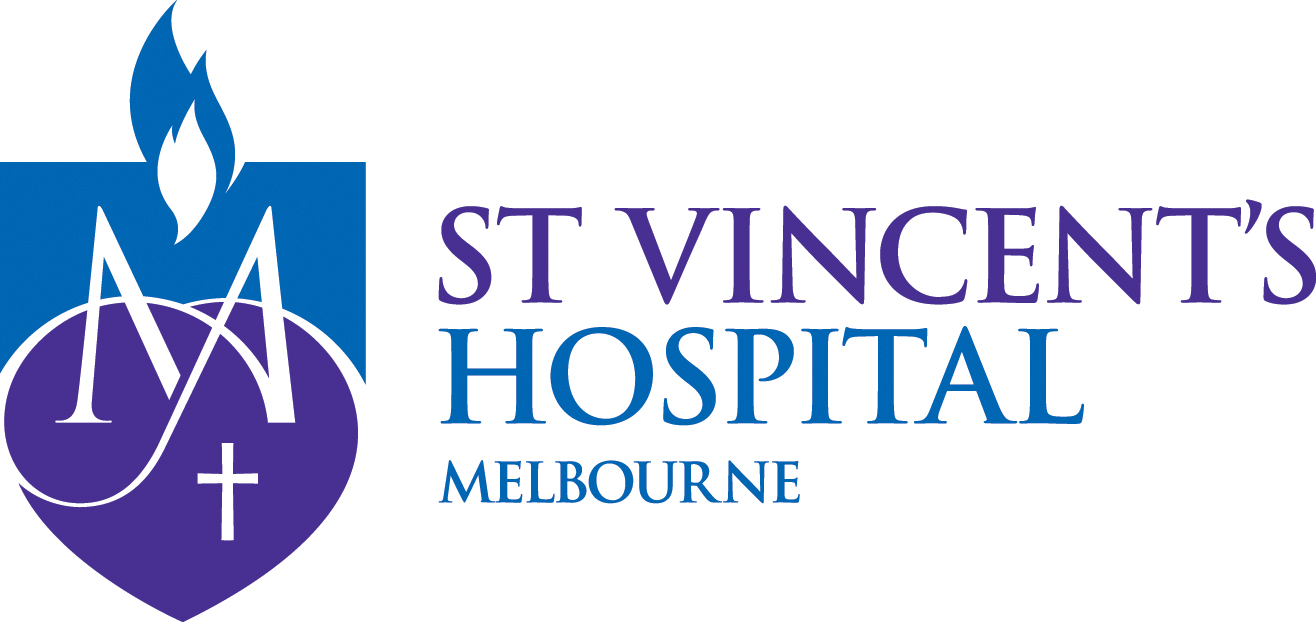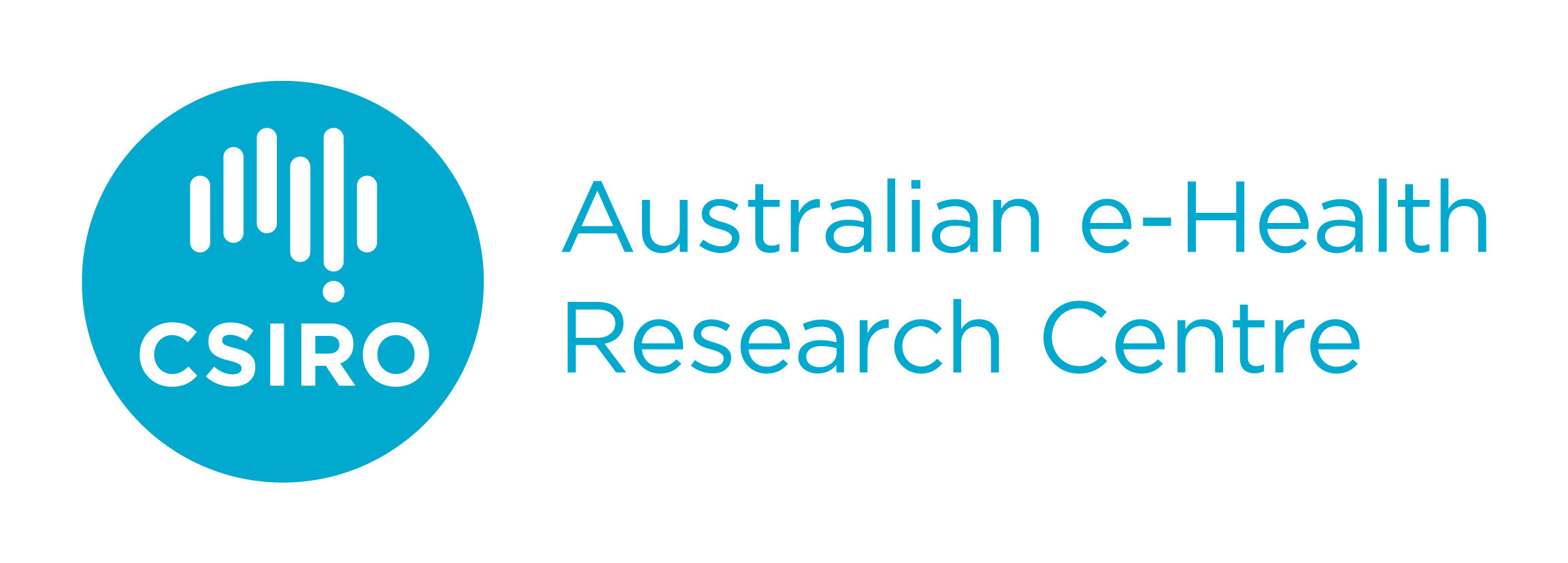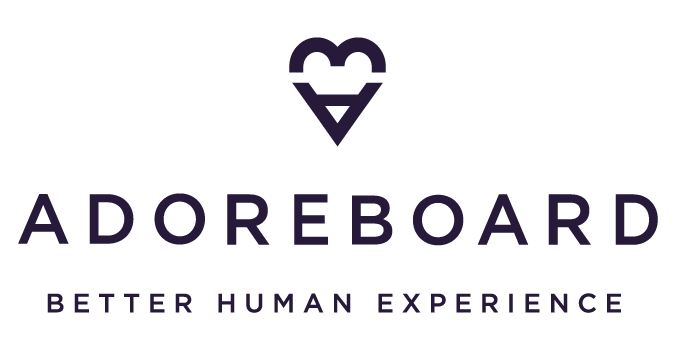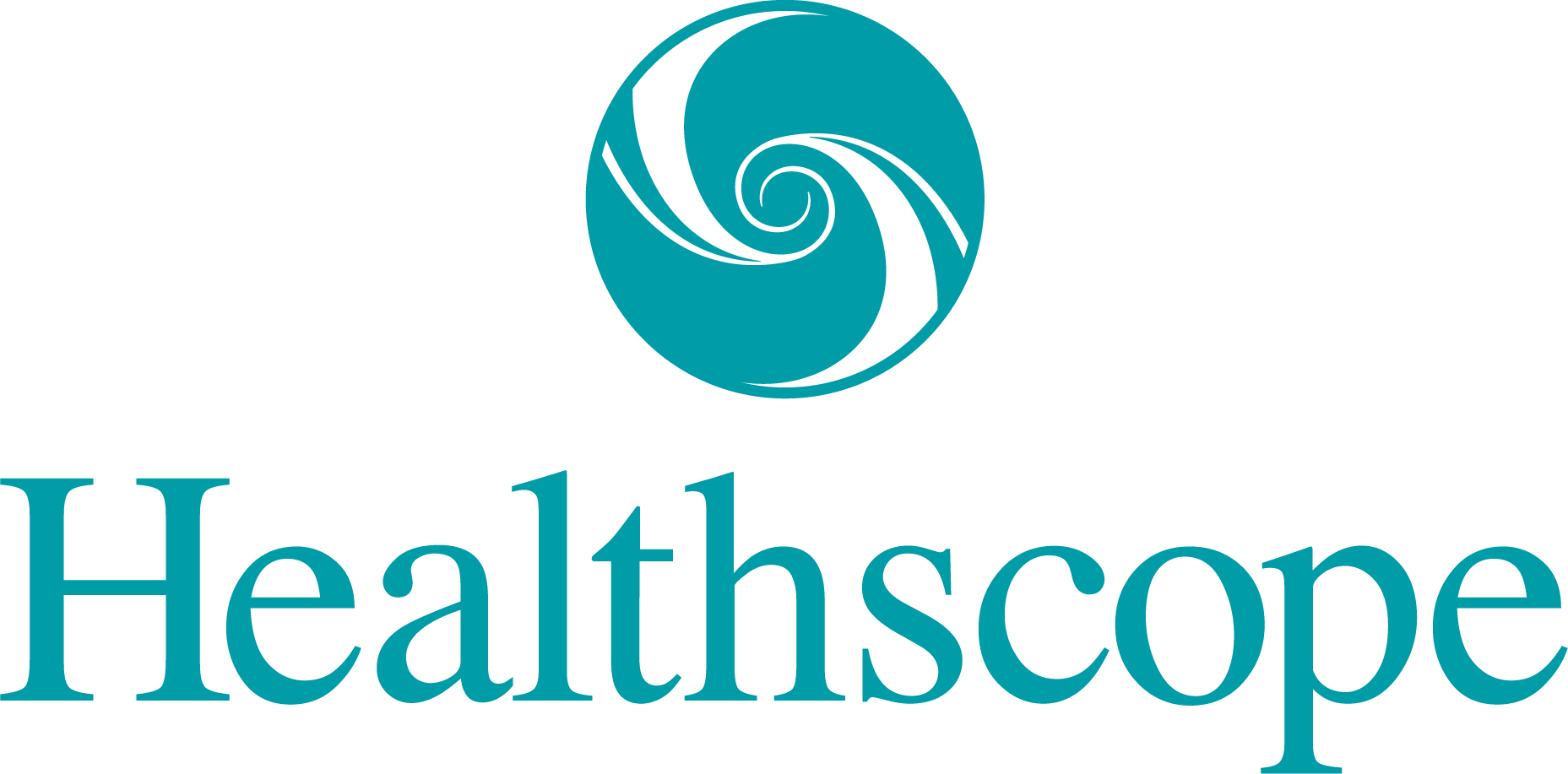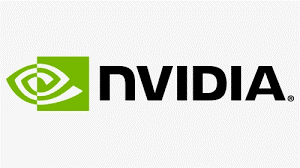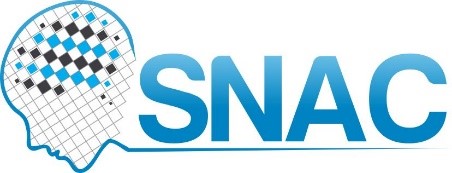Global Speakers
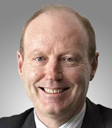
Andrew Saunders
Board Director & Chair of Community Advisory Committee
Eastern Health
Forum Chairperson
Topic:
Panel: Who Is Responsible For AI Misdiagnosis? Regulatory Perspectives On AI
Andrew has an Executive background in leading complex organisation and digital change in health services and Government. He was the Health CIO and Director of Digital Health for Victorian Public Health Services, and is now a Board Director for Eastern Public Health Services (Melbourne), Dental Health Services Victoria and Victorian Legal Aid, and Chair of the HIMSS Asia Pac Governance Council.
He is an advocate for person centred health care and wellbeing, and developed the Digitising Health Strategy for Victoria to enable the Government’s Health & Wellbeing 2040 Strategy. His specific expertise includes digital transformation, evidence-based benefits realisation, digital maturity, strategy & planning, business case development, enterprise risk identification & management, program governance and financial management.
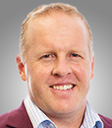
Mark Middleton
CEO
Icon Group
Topic:
Use Of AI To Personalize Cancer Care At Icon Group
A radiation therapist with extensive management experience, Mark brings essential clinical expertise and astute strategic vision to his role as CEO of Icon Group. His leadership style is simple; he is committed to nurturing the capabilities of his team while challenging them to deliver exceptional cancer care – and growing the business to ensure that care is available to as many people as possible.
From the Group’s earliest days, Mark advocated for providing services not just in metropolitan centres but also in outer-metro and regional communities throughout Australia. Under his leadership, Icon has grown from 12 to 30 cancer centres through a combination of strategic acquisitions and new builds. Over 50% of this network services outer-metro and regional areas. Further centres have also been announced in Victoria and regional New South Wales, with all expected to open in the medium term.
He has also overseen robust international expansion into New Zealand, Singapore, the wider South East Asian region and Hong Kong. Significantly, under Mark’s leadership Icon Group became the first Australian healthcare company to enter the Chinese market. These achievements are a reflection of Mark’s clear vision for Icon Group and his capacity to forge strong and productive partnerships with local and international healthcare providers.
Prior to his current role, Mark worked in cancer care in North America and Europe before founding Radiation Oncology Queensland (ROQ) – now part of Icon Group. He has published 25 peer reviewed scientific papers and is a frequently invited keynote speaker both nationally and internationally. In 2018, he was announced as a Director on the inaugural City Cancer Challenge Board.
Mark was a State Finalist for the Australian Institute of Management (AIM) Queensland Manager of the Year in 2014, regional winner of the AIM Excellence Award 2015 and finalist in CEO Magazine’s 2016 and 2019 Executive of the Year Awards. He has a Master of Business Administration from Deakin University and is a Fellow of both the AIM and the Australian Institute of Radiography.
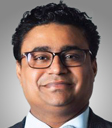
Dr. Sonu Bhaskar
Founding Director
NSW Brain Clot Bank
Topics:
- Panel: Who Is Responsible For AI Misdiagnosis? Regulatory Perspectives On AI
- Designing Futuristic Telemedicine Using Artificial Intelligence And Robotics In The COVID-19 Era
Dr Sonu Menachem Maimonides Bhaskar, MD PhD PD (Stroke/Neurology), is an award-winning clinician-scientist, board director and academic neurologist with a specialisation in vascular neurology & neuroradiology; and a researcher with a strong focus on global health, clinical neurology, and health systems, with a proven track record in governance, policymaking, social innovation, and systems-level growth & strategy. Dr Bhaskar is the Founding Director of NSW Brain Clot Bank – a flagship world’s first initiative in stroke; Founding Director of Pandemic Health System REsilience PROGRAM (REPROGRAM) international consortium (an international consortium formed to champion the safety of healthcare workers, policy development and advocacy for global pandemic preparedness and action), Director at the Rotary Club of Sydney, International Director at International Fellowship of Rotarian Doctors (RFID, UK) and Editorial Board Member of BMC Neurology. Dr Bhaskar has been featured on Sydney Morning Herald, 9 News, Reuters Health/Medscape, Rotary Down Under and ABC News-MSN. He is the two-time winner of the prestigious 2019 European Academy of Neurology Investigator Award, 2021 Paul Harris Fellow recognition by Rotary International and 2020 Rotary Vocational Excellence Award. According to Expertscape, Dr Sonu Bhaskar is ranked among the world’s top 0.39%, 0.35%, 0.56%, and 0.75% of researchers/experts in the fields of Stroke, Cerebrovascular Disorders, Brain Diseases, and Cardiovascular Diseases, respectively. Dr Bhaskar is passionate about advocacy and leadership for social impact and innovation, rooted in diversity, community, innovation and belonging.
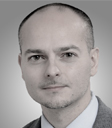
Prof. Antonio Di Ieva
Consultant Neurosurgeon
Macquarie Neurosurgery
Topic:
AI In Computational Neurosurgery And Clinical Neurosciences
Professor Antonio Di Ieva is a full-time academic neurosurgeon at the Macquarie University Hospital, Sydney, and consultant at Macquarie Neurosurgery. He is Professor at Macquarie University, professor of neurosurgery in Italy, and Associate Professor of Neuroanatomy at the Medical University of Vienna, Austria. His clinical specialities include neuro-oncology, pituitary and skull base surgery, spine and peripheral nerve surgery and pain treatment as well.
Professor Di Ieva is also a clinical and computational neuroscientist. His primary research interests are in neuroanatomy, neuroimaging and computational neurosciences, focused on the application of advanced computer-based analyses in the field of the clinical neurosciences. He has published more than 130 peer-reviewed articles, 3 books, including the only textbook on the application of computational fractal-based analysis to the brain science, and many book chapters. Moreover, he has won 7 international awards in Neurosurgery and Neurosciences, including the John Mitchell Crouch Fellowship 2019, the most prestigious research award of the Royal Australasian College of Surgeons (RACS). He is founded by the NHMRC and in 2019 he was awarded a prestigious Australian Research Council (ARC) Future Fellowship with a research project in machine vision.
At Macquarie University, he has founded and leads the Computational NeuroSurgery (CNS) Lab, aimed to the application of advanced computational modelling (e.g., fractal-based analysis, Artificial Intelligence, radiomics and advanced image analysis) to the study of brain diseases of neurosurgical interest, namely brain tumours and cerebrovascular diseases, amongst others.
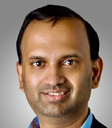
Dr. Sandeep Reddy
Associate Professor
Deakin University
Topics:
- Using AI In Medical Diagnostics
- Panel: Who Is Responsible For AI Misdiagnosis? Regulatory Perspectives On AI
Sandeep is an Artificial Intelligence (AI) in Healthcare researcher based at the Deakin School of Medicine besides functions as a certified health informatician and a World Health Organization recognized digital health expert. He has a medical and healthcare management background and has completed machine learning/ health informatics training from various sources. He is currently engaged in research about the safety, quality and explainability of the application of AI in healthcare delivery in addition to developing AI models to treat and manage chronic diseases. Also, he has authored several articles and books about the use of AI in Medicine. Further, he has set up local and international forums to promote the use of AI in Healthcare in addition to sitting on various international committees focusing on AI in Healthcare.
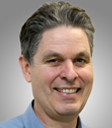
Prof. Geoff Webb
Research Director, Monash Data Futures Institute
Monash University
Topic:
Monash University And Alfred Hospital’s AI Superbug System: Supporting Super Bug Diagnosis, Treatment And Prevention
Geoff Webb is Research Director of the Monash University Data Futures Institute. He is a leading data scientist and the only Australian to have been Program Committee Chair of the two leading Data Mining conferences, ACM SIGKDD and IEEE ICDM. He was elevated to IEEE Fellow in 2015 and his numerous awards include the inaugural Eureka Prize for Excellence in Data Science (2017).
He was editor in chief of Data Mining and Knowledge Discovery from 2005 to 2014. He is a Technical Advisor to BigML Inc, who have incorporated his best of class association discovery software, Magnum Opus, as a core component of their cloud-based Machine Learning service. He developed many of the key mechanisms of support-confidence association discovery in the 1980s. His OPUS search algorithm remains the state-of-the-art in rule search. He pioneered multiple research areas as diverse as black-box user modelling, interactive data analytics and statistically-sound pattern discovery. He has developed many useful machine learning algorithms that are widely deployed.
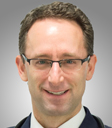
Prof. Anton Peleg
Professor of Infectious Diseases and Microbiology
Monash University
Topic:
Monash University And Alfred Hospital’s AI Superbug System: Supporting Super Bug Diagnosis, Treatment And Prevention
Anton Peleg is a Professor of Infectious Diseases and Microbiology, Australian National Health and Medical Research Council Practitioner Fellow and Director of the Department of Infectious Diseases at The Alfred Hospital and Monash University, Melbourne, VIC. He is Theme Leader for Infection and Immunity at Monash Academic Health Research and Translational Centre, and has recently been elected as a Fellow of the Australian Academy of Health and Medical Sciences.
He completed his infectious diseases clinical training in Australia in 2005 and then went to the USA for four years and worked at the Harvard-affiliated hospitals; Beth Israel Deaconess Medical Center and Massachusetts General Hospital. He completed a Masters of Public Health at Harvard School of Public Health, and also completed a PhD in Infectious Diseases and Microbiology with a focus on antimicrobial resistance (AMR) and genomics. He returned to Australia in 2010 as a clinician-scientist.
His research interests are in hospital-acquired infections, AMR and novel solutions, bacterial genomics, mechanisms of pathogenesis and infections in immunocompromised hosts. He is the lead investigator on the SuperbugAi project, which aims to integrate digital health data with pathogen genomics using machine learning approaches. He is also an active clinician working in the area of transplant infectious diseases and hospital-acquired infections. He has received numerous national and international awards for his advanced research and contribution to Infectious Diseases and Microbiology.
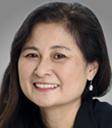
Alison Choy Flannigan
Partner
Hall & Wilcox
Topic:
Panel: Who Is Responsible For AI Misdiagnosis? Regulatory Perspectives On AI
Alison Choy Flannigan, Partner, leads the Health & Community team at National law firm, Hall & Wilcox. Alison is also company secretary of the National Foundation for Medical Research and Innovation and the Publications Officer of the Healthcare and Life Sciences Law Committee of the International Bar Association.
With over 20 years of corporate, commercial and regulatory experience, Alison has specialized in advising clients in the health, aged care, disability, life sciences and community sectors. She is previously general counsel of Ramsay Health Care Limited, Australia’s largest private hospital operator, company secretary of Research Australia and the preferred legal adviser for many years for NSW Health on clinical trial agreements and research governance
Alison has advised Australian companies and multinational pharmaceutical and medical device and health care companies establish business in Australia. She advises on issues such as intellectual property, regulatory (including TGA), corporate and commercial advice, mergers & acquisitions, capital raisings and therapeutic goods product recalls.
Alison is a market leader, having been listed in Best Lawyers for each and every year since 2008 for health & aged care, retirement living and biotechnology in Australia, Doyles Guide as a Preeminent Leading Health and Aged Care Lawyer in each and every year since 2017, as well as being a finalist for Lawyers Weekly Partner of the Year, Health, in each and every year since 2016 and winning this prestigious award in 2019 and 2020.
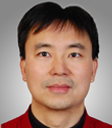
Dr. Steven Weidong Su, PhD
Associate Professor, School of Biomedical Engineering, Faculty of Engineering and IT
University of Technology Sydney
Topic:
Transforming Patient Rehab Through Robot-Assisted AI-Exoskeleton
Steven Su, PhD is Associate Professor at UTS and a core member of its Centre for Health Technologies (CHT) and Global Big Data Technologies Centre (GBDTC). He has over 20 years of experience in system control and optimisation, biomedical system modelling and parameter estimation, and rehabilitation engineering, having published 1 book and over 270 refereed research papers in these areas. He is a senior member of IEEE and a member of AusBiotech. He holds editorial positions for renowned journals in his field, including current Editor for International Journal of Circuit Theory and Applications, Associate Editor for International Journal of Advanced Robotic Systems, and editorial member for Applied Soft Computing.
Steven Su has led several major research projects at UTS CHT and GBDTC. He developed a research team for robot rehabilitation. In the last five years, this research team has received both external and internal research funding for stroke diagnosis and rehabilitation (e.g., the ‘Lam Yuen Trust and Australia China Economics Trade & Culture Association Scholarship for Medical Research’ and ‘FEIT/UTS Blue Sky Research Scheme’ funding). Based on this support, the two remote controllable rehabilitation robots: the AI Exoskeleton (funded by Techcelerator and winner of the Most Innovative Prototype Award 2020) and the ankle rehabilitation robot, have been developed for rehabilitation. He also developed an electronic nose (NOS.E) gas sensing system, which received significant industry funding (including CRC-P) and was recognised by the NSW State iAwards 2020 for Business and Industry Solution.
Steven Su received his B.E.(Hon) and M.E. degrees from Harbin Institute of Technology, China, and his Ph.D. degree from the Australian National University (ANU), Australia.

Dr. Jeremy Hudson
Clinical Director
North Queensland Skin Centre
Topic:
The Future Of Skin Cancer Detection Could Be Artificial Intelligence
Dr Hudson is the lead Australian researcher for Fotofinder ATBM’s International Trial for Artificial Intelligence imaging, and is involved in the development of novel technologies for early skin cancer detection, such as the use of Super High Magnification Imaging (Confoscopy).
Dr Hudson works full time in Skin Cancer Medicine and Surgery and has extensive qualifications in the field, performing regular skin checks and a wide range of treatments including non-surgical therapies, basic excisions and complex flap and graft surgery.
Jeremy strongly believes that since Australia has one of the highest rates of skin cancer in the world, our patients deserve access to the best and latest advancements in skin cancer medicine.
Dr Hudson also holds the position of Senior Lecturer at James Cook University, where he writes and teaches courses in skin cancer medicine, dermoscopy, and advanced graft and flap surgery. He is currently developing a series of online written and video resources for skin cancer surgical training.
Dr Hudson is an active member of several other research and training organizations including the Dermatology Special Interests Group (RACGP), the Skin Cancer College of Australasia, and has assisted in research projects on surgical outcomes, histological sampling and tissue samples for cell line studies.
Jeremy is a strong advocate of education for both patients and doctors, and has worked extensively in both paid and volunteer positions to deliver high quality care and raise local training standards.
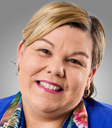
Teena Pisarev
Managing Director NSW/ACT & Singapore
Virtus Health
Topic:
Virtus Health Case Study: Leveraging AI Technology To Help On Increasing Success Rates In IVF Pregnancies
With more than 20 years working in the private healthcare sector within hospital, diagnostics, pathology and outpatient services Teena has a broad and extensive understanding of the emerging trends and challenges facing the health industry locally and within Southeast Asia. Over her career Teena, who is a graduate of Griffith University (GC), has worked closely with doctors establishing practices and amalgamating opportunities, led major brownfield healthcare redevelopments, and implemented new services to significantly increase services accessibility and hospital performance. She has a strong ability to engage teams, increase performance and deliver outstanding growth.
During her role as CEO of Icon Cancer Care, she oversaw the divisional expansion via (engagement – just used above) collaboration with VMOs, staff and partner organisations. Through the simplification of processes, strengthening of clinical governance and empowerment of local leaders, Teena delivered strong growth and maintained an engaged and enthusiastic team. This was followed by a period living and working in Singapore and leading the MA expansion into South East Asia, as Regional CEO, where she successfully led the expansion of Icon in South East Asia.
Upon returning to Australia Teena joined Virtus Health in 2019, where she heads operations in multiple business units across Australia and South East Asia. Skilled in strategy planning, business development, change management and healthcare operations her leadership style is straight forward; supported, engaged clinicians and empowered and well-resourced teams result in exceptional patient care.
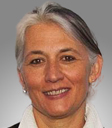
Dr. Tanya Petrovich
Business Innovation Manager
Dementia Australia
Topic:
Dementia Australia Case Study: World-First AI Avatar To Improve Dementia Care
Dr Tanya Petrovich is Business Innovation Manager, Centre for Dementia Learning, Dementia Australia.
Tanya leads the team in applying innovations in technology throughout dementia care education. This includes the Virtual Dementia Experience, an immersive sensory environment at the Perc Walkley Dementia Learning Centre which won the 2014 Victorian iAward, National iAward for Education and APICTA award for E-learning, 2015 Victorian Public Health Award-Gold Winner. The Virtual Dementia Experience gives participants an understanding of what it might be like to have dementia and also how the built environment impacts on the person living with dementia.
More recently in 2016 EDIE- Educational Dementia Immersive Experience was released for use on the Samsung – Oculus Gear VR. This mobile technology has opened the opportunity to have these virtual experiences available to people not only in Australia but worldwide. The EDIE project was awarded the project Innovation Award for projects less than$2.5Mil from the Simulation Australasia Innovation Awards 2017 and also the Best Aged Care Software Development and Deployment Award at the Information Technology in Aged Care awards (ITAC) 2017.
Her team is currently working on a project to create an artificially intelligent Avatar living with dementia.
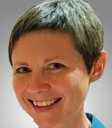
Jo Hunter
Co-Director of lab MoTILa
Monash Health
Topic:
Feasibility Of A Digital Assistant As An Adjunct To Clinical Management Of Chronic Disease
Jo Hunter is Assistant deputy director of pharmacy – Informatics at Monash Health, and also co-directs the Motila Research lab.
As a certified health informatician in a constantly evolving healthcare environment, Jo believes that data-driven and smart technology-enabled workflows are key drivers in improving patient outcomes. Through innovative methods of data capture and utilisation, Jo hopes that collaboration can build a more proactive model of patient care.
Through the use of data visualisations and artificial intelligence, Jo’s work focuses on empowering patients to seek information related to their medicines, and self-manage their health, whilst also proactively escalating care when required.

A/Prof. Tam C. Nguyen
Deputy Director of Research
St Vincent’s Hospital Melbourne
Topic:
Keynote: How AI And Robotics Are The Keys To Australia’s Healthcare Evolution
Associate Professor Tam Nguyen is a Non-Executive Director and Deputy Director of Research with over 15 years of board level experience across not for profit, healthcare and aged care sectors. He has over 20 years of working in the healthcare, health & medical research environment including tertiary teaching hospitals across Australia.
Tam is the Deputy Director of Research at St Vincent’s Hospital Melbourne (SVHM), one of the largest tertiary teaching and research hospitals in Melbourne – responsible for the organisation’s research strategy, research ethics and governance, clinical trials, research innovation and development. SVHM is one of the largest tertiary teaching and research hospitals in Melbourne, with respected clinical education and clinical research programs. SVHM is part of St Vincent’s Health Australia Network – a $2B health care network and second largest healthcare provider in Australia.
Tam serves as non-executive director on various not-for-profit, healthcare and aged care boards. He also advises numerous medtech and health tech start-ups. He is a regular invited speaker on a broad range of topics in healthcare technology and leadership. He chairs and moderates at numerous national and international conferences.
Tam currently holds academic appointments with Melbourne Medical School and Monash Medical School (Ranked 1st and 3rd in Australia respectively and 2nd and 10th in AsiaPac respectively)
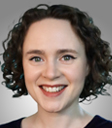
Dr. Denis C. Bauer
Head Cloud Computing Bioinformatics
CSIRO
Topic:
Cloud-Based Machine Learning In The Fight Against COVID-19
Dr Denis Bauer is a government research scientist, adjunct professor at Macquarie University and an AWS Hero. She is passionate about translating research into impactful products. Her science has led to the discovery of novel disease genes for Motor Neuron Disease and has informed the COVID-19 vaccine development. Her open-source bioinformatics software products have commercial impact through advanced cloud-architecture and deployment. She keynotes international IT, LifeScience and Medical conferences and has attracted more than $35M in funding to further life-science research and digital health.
Denis holds a Bachelor in Bioinformatics from Germany, a PhD in Bioinformatics from the University of Queensland and a Certificate in Executive Management and Development from the University of New South Wales Business School.
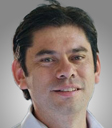
Dr. Aldo F Saavedra
Senior Research Fellow, Health and Clinical Analytics, School of Public Health
The University of Sydney
Topic:
Identifying Patients At Risk Of Sepsis For Early Intervention With Predictive Algorithm And AI Profiling
Dr Aldo Saavedra joined the University of Sydney in 2007, following fellowships at The University of Glasgow and the Lawrence Berkeley National Laboratory. His key international research experience includes working on two ground breaking experiments at the Large Hadron Collider (LHC): ATLAS and LHCb. Both experiments were located at the European Particle Physics Laboratory (CERN) in Geneva, Switzerland. His research involved the analysis of the large datasets (around 100 Terabytes) composed of selected proton-proton collisions recorded by the experiment using state of the art software and advanced statistical techniques.
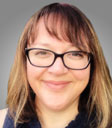
Vicky Stavroulakis
Co-Founder
PintarHealthConnect
Topic:
Roundtable Discussion: Challenges In AI Adoption And Scaling
Vicky Stavroulakis is the Co-Founder of global healthcare marketing agency PintarHealthConnect. With over 25 years in healthcare research and later in corporate, commercial, and strategic marketing Vicky has worked both the public and private sector. Working for South Eastern Area health service and for much of her corporate life in pharmaceutical companies: Boehringer Ingelheim, Sanofi, Allergan and more recently Mylan.
With a laser focus on improving patient outcomes, Vicky partners with her teams to build the right platform, for the right patient to either launch novel pharmaceutical, medical device, and AI/digital solutions. Crucial to the success of any launch, and integration is the careful engagement of stakeholders with the right mindset and framework. This mindset has seen Vicky and her team, win national industry awards for best patient programs, patient support programs and also be nominated by healthcare professional for providing an integrated service to their practices and patients nationally.
As a passionate advocate for integrating digital and Artificial Intelligence solutions into healthcare, Vicky takes a pragmatic approach to ensuring everyone is heard: clinicians, healthcare MDT, commercial teams, administrators, and patients.
Vicky currently advises Healthcare not profits, AI, pharmaceutical and medical device organisations. She is also a recent advisory board member of the medical device group focused on building the framework of connected healthcare technology in Australia.
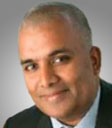
A/Prof Joseph Mathew
Deputy Director of Alfred Health Trauma Services
The Alfred Hospital
Topic:
Helping COVID-19 Patients To Stay Safe with AI Backed Pandemic Intervention And Monitoring System
A/Prof Joseph Mathew is the Deputy Director of Alfred Health Trauma services and the Head of International Programs (South Asia) at The National Trauma Research Institute.
A/Prof Mathew has been successfully involved in Trauma systems development across Asia in countries like India, Sri Lanka, China and Saudi Arabia. He was the Australian lead of the successfully completed Australia- India Trauma System Collaboration which involved systems development, registry development and technology development. He is done work as a consultant in trauma systems development.
A/Prof Mathew’s research interest has been in the use of nanotechnology in haemorrhage control and bone healing. He recently won a MIME-CSIRO grant for the same. His other research interests are the role of hypocalcaemia in haemorrhage control. The other special interests have been in AI based decision making and deep learning algorithms to identify and treat critically deteriorating patients in head injured patients, aged care residents and bespoke disease groups. He has also been instrumental in creating mobility app systems for prehospital notifications/registry/trauma quality improvement programs and rehabilitation assistance. He recently co created the successful AI backed Pandemic intervention and monitoring system (PIMS) for remote monitoring CoVID-19.
A/ Prof Mathew has been the founder and co-creator of multiple trauma educational programs including the highly successful cadaveric Trauma Procedures course, Emergency Trauma Management course and the Trauma Team Training Program.
A/Prof Mathew is a reviewer for multiple international journals and is the past Chair of the Trauma subcommittee of Australasian College of Emergency medicine and is also member of the Trauma Verification committee of the RACS.
A/Prof Mathew has been an invited speaker in multiple national and international conferences in the field of Trauma care.
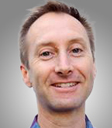
Prof. Paul Kennedy
Director, Biomedical Data Science Laboratory, Head of Discipline (Data Analytics/Artificial Intelligence)
University of Technology Sydney
Topic:
Cross-Disciplinary Approaches For AI In Paediatric Cancer
Professor Paul Kennedy is Director of the Biomedical Data Science Laboratory in the UTS Australian Artificial Intelligence Institute and the Head of the School of Computer Science. He is co-initiator since 2003 of a research collaboration with the Children’s Hospital at Westmead, the University of Western Sydney and Queen’s University, Canada, developing methods and software tools to better diagnose and treat childhood cancer. He also explores other areas of data analytics and bioinformatics, including developing bioinformatics pipelines to facilitate animal vaccine discovery, developing text analytics approaches to scientific literature and social media, and developing methods for use with flow cytometry data. He teaches subjects in data analytics and is a member of the ISO/IEC SC42 committee on standardising artificial intelligence and the Australian mirror committee.

Lachlan Rudd
Director Data and Analytics
eHealth NSW
Topic:
Leveraging AI In Healthcare
Lachlan Rudd is eHealth NSW’s Director of the Data and Analytics Portfolio (DAP). This portfolio coordinates all data, analytics and research related projects within eHealth NSW, which are growing in number and importance as progress is made towards the implementation of eHealth Strategy for NSW.
Lachlan’s previous experience was as Product Owner at Quantium, a company that specialises in the development of AI driven big data products. Prior to that, Lachlan worked as a Research Projects Officer at CSIRO’s Digital Productivity Flagship. Earlier in his career, Lachlan was Director of a Beijing based investment advisory firm, specialising in China outbound investment.
Lachlan holds Bachelor of Business (Finance and Mandarin Language) and Master of Mathematics (Applied Statistics) degrees from Queensland University of Technology.

Chris Johnston
CEO
Adoreboard
Topic:
Emotion AI Case Study: AI Technology To Improve Patient Experience
Chris Johnston is the CEO & founder of Adoreboard, a world leading emotional analysis platform, that helps brands transform customer experience by turning customer interactions from any source into unique Emotionally Intelligent Insights. He has extensive experience working in a communication advisory role for global companies including Hewlett-Packard, Danske Bank and Grant Thornton. As a specialist in corporate reputation his work has been recognised by the UK Chartered Institute for Public Relations for best B2B communications campaign with Danske Bank. He has studied at Kennedy School at Harvard, Montana State University and University of Ulster. He has held fellowships with: NATO working group (Atlantic Council), Transatlantic Network 2020 (British Council) and The Royal Society for the encouragement of Arts, Manufactures and Commerce (RSA).

Jeffrey Woods
Chief Nursing Officer
Healthscope
Topic:
Emotion AI Case Study: AI Technology To Improve Patient Experience
Jeffrey Woods BN, MN, RN, MACN (He/Him/His)
As the inaugural Chief Nursing Officer for Healthscope, Jeffrey has been working to build a framework for nursing excellence that supports and enables Healthscope’s more than 10,000 nurses and midwives. Prior to assuming the Chief Nursing Officer role, Jeffrey was the National Patient Experience Manager for Healthscope, while in this role Jeffrey successfully implemented a national transition from paper to an electronic PREMS survey process across 42 sites, inconjuction with rolling out a national strategy for improving the patient experience. Jeffrey has previously worked at Cedars-Sinai Medical Centre in Los Angeles with line management, project management and patient experience responsibilities. He is a registered nurse with a Master’s Degree in Nursing and experience in critical care, education, performance improvement, change management and experience management.
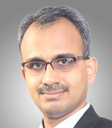
Dr. Ettikan Karuppiah
Director/Technologist
NVIDIA
Topic:
Privacy Preserving AI Medical Imaging With Federated Learning
Ettikan has PhD in the area of Distributed Computing, and as Director/Technologist at Nvidia, Asia Pacific South Region, focuses in translation R&D to accelerate DL/ML/GPU adaptation for Nvidia customers/partners/collaborators translational R&D and software solutioning for production use.
He has direct experience and passionate in accelerated computing/software research/deep learning, design and development activities covering end-to-end needs. He also has published numerous publications, patents and software libraries from his past work. As computational scientist, he loves and works on complex industrial problems from diverse domains which requires him to learn, unlearn and relearn in many instances.

Dr. Chenyu (Tim) Wang
Director of Operations
Sydney Neuroimaging Analysis Centre (SNAC)
Topic:
Privacy Preserving AI Medical Imaging With Federated Learning
Dr. Tim Wang is a Senior Lecturer at the Brain and Mind Centre (University of Sydney) and Director of Operations at Sydney Neuroimaging Analysis Centre (SNAC). As an award winning researcher specialising in clinical applications of neuroscience and neuroimaging engineering, Tim has led large-scale government funded translational research projects to bring research, innovation and industry together. His work has translated to real-world efficiency gains for clinicians; improved diagnostics and disease monitoring for patients; and novel insights into the pathophysiology of brain diseases for researchers.
As a SNAC co-founder, Tim has been leading an interdisciplinary team of more than 30 scientists, engineers, developers and clinicians to produce state-of-the-art research and cutting-edge neuro-technology solutions.
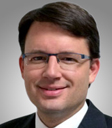
Dr. Werner Scholz
CTO and Head of R&D
XENON
Topic:
Privacy Preserving AI Medical Imaging With Federated Learning
Werner has more than 20 years’ experience with high performance computing systems including massively parallel HPC clusters and large storage systems. He is also the developer of an open source finite element simulation package, which uses MPI, OpenMP, and GPU parallelisation techniques. It is in use by academic and industrial research organisations around the world.
Werner has a PhD in physics from the Vienna University of Technology in Austria, where he specialised in computational physics and magnetic materials. He is the author of more than 80 journal articles in the area of computational physics and magnetic nanostructures and co-inventor of 12 patents related to magnetic storage technologies.

Mark Nevin
FAIDH
Topic:
Panel: Who Is Responsible For AI Misdiagnosis? Regulatory Perspectives On AI
Mark has held several executive positions in international peak membership bodies overseeing policy, strategy, regulation and government affairs. He has wide ranging experience of governance, policy development and the implementation of strategy. His qualifications include a BSc Economics, MSc in European Politics and Governance, certificates in leadership and the AICD company director’s course. He also became a Fellow of the Australasian Institute of Digital Health in 2020 in recognition of his work on telehealth and artificial intelligence.
Mark is interim CEO of the Royal Australian and New Zealand College of Radiologists until October 2021. Before that, he oversaw the Faculties of Clinical Radiology and Radiation Oncology and led RANZCR’s policy and advocacy work for six years. Prior to coming to Australia, Mark headed up policy and strategy for the optometry sector in the UK, Republic of Ireland and the European Union. Mark’s interest and expertise in health stems from 10 years delivering front line care as an optometrist in the UK.
Moreover, he has extensive governance experience, serving on numerous national and international committees, including four years as a board member of the European Council of Optometry and Optics.
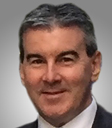
Paul Nolan
Lawyer
Topic:
Panel: Who Is Responsible For AI Misdiagnosis? Regulatory Perspectives On AI
Paul has been a practising solicitor and barrister since 1997. He holds undergraduate and Masters’ degrees in both law and intellectual property, and prior to commencing in law, he was a practising radiographer and ultrasonographer in several public and private hospitals. He was employed at a mid-tier national law firm from 1997 before commencing at the NSW Bar in 2001. He has appeared in High Court cases (most notably Fox v Percy dealing with appellate review) and numerous Court of Appeal cases in NSW and the ACT. Paul is the author of several articles looking at artificial intelligence as an inventor under the Patents Act 1990 (Cth) and is currently undertaking research into the liability of AI in healthcare.


